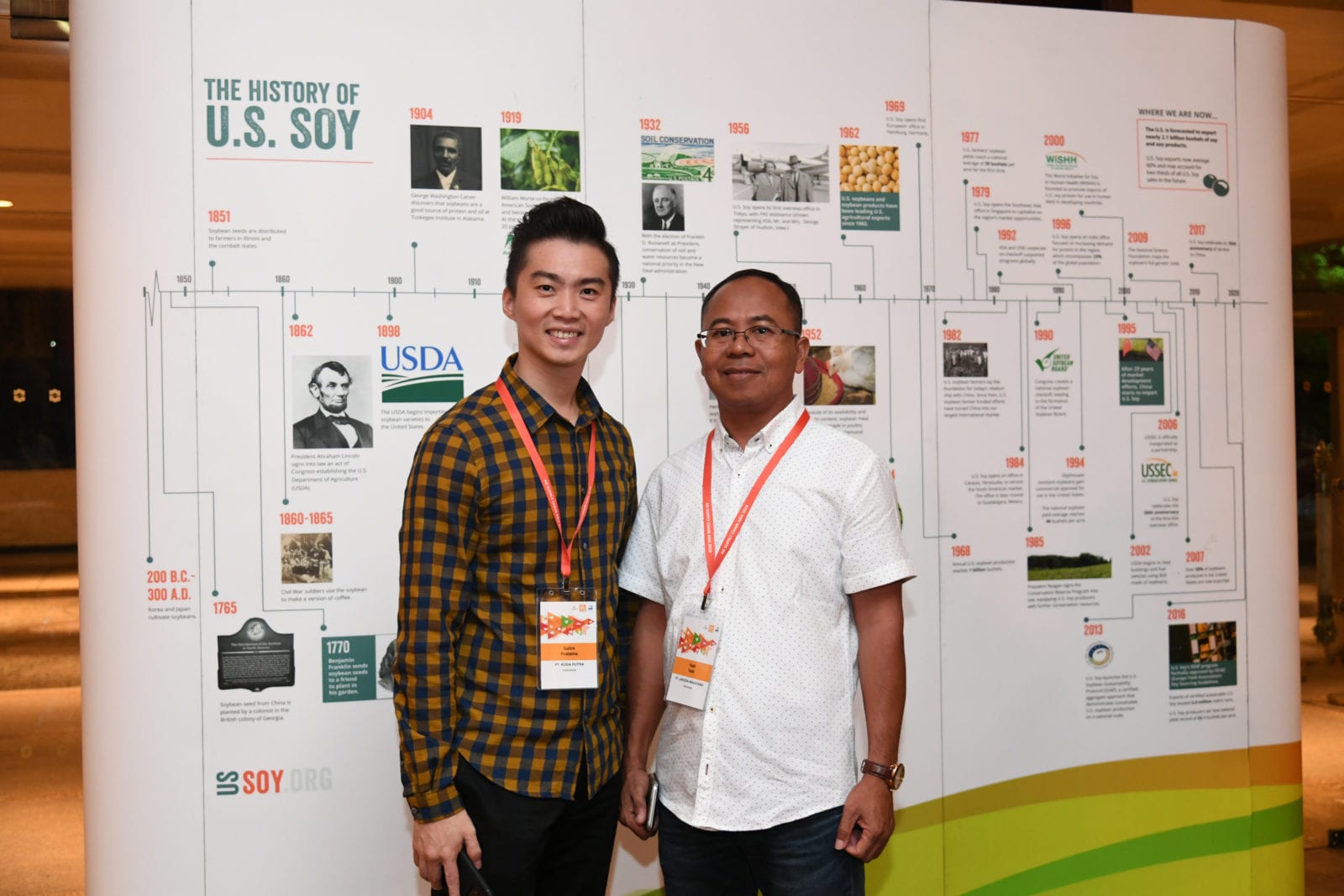Southeast Asia Customers Value Information Learned at USSEC’s 13th Southeast Asia Food Symposium
- Category:
- Event followup
- General News
- Soy Foods

With funding and support from the North Dakota Soybean Council, Northern Food Grade Soybean Association, United Soybean Board and Foreign Agricultural Service U.S. Department of Agriculture, USSEC successfully organized its 13th Southeast Asia Soy Food Symposium, “Science to Market: Sustainable Food Supply for Health in the Eera of Transformation,” at the Shangri-la Hotel, Surabaya, Indonesia on March 19 and 20.
More than 135 participants from across Southeast Asia involved in various aspects of the food industry such as research and development, product marketing, food technologists, nutritionists and health professionals, as well as representatives from the trading community and government ministries participated in this year’s conference.
The 13th Southeast Asia Soyfood Symposium brought together a distinguished panel of international experts and regional key stakeholders to provide valuable insights on the latest developments in global soybean trade, sustainable supply chains, new utilization and innovation in soy food and beverages within the region. Presenters also highlighted the recent advances and adoption of transformation technologies and consumption trends. In summary, the event provided participants with research updates and issues related to soy and health benefits, from science to market focusing on the current socio-demographic trends and consumer preferences.



With Tempe’s recent induction as Indonesia’s National Cultural Heritage, the second day of the Symposium was dedicated to highlighting this milestone. Day two of the conference covered topics such as “Tempe as Indonesia's ‘Intangible Cultural Heritage (ICH),” “Benefits, Challenges, and Opportunities for the Tempe Industry,” “A Collaborative Effort for Tempe Industry Upgrade and Improvement in Indonesia,” and “Moving Tempe from a Home-Scale Industry into Modern Market Place - Opportunities and Challenges for the Food Manufacturing and F&B Industry,” aimed at encouraging the local stakeholders and academia to continue to elevate the status and recognition of tempe for its nutritional benefits as well as cultural identity among consumers. The forum also discussed the next steps for tempe in its bid to be recognized as an “Intangible Cultural Heritage of Humanity by United Nations Educational, Scientific and Cultural Organization (UNESCO), a process that is already underway.


